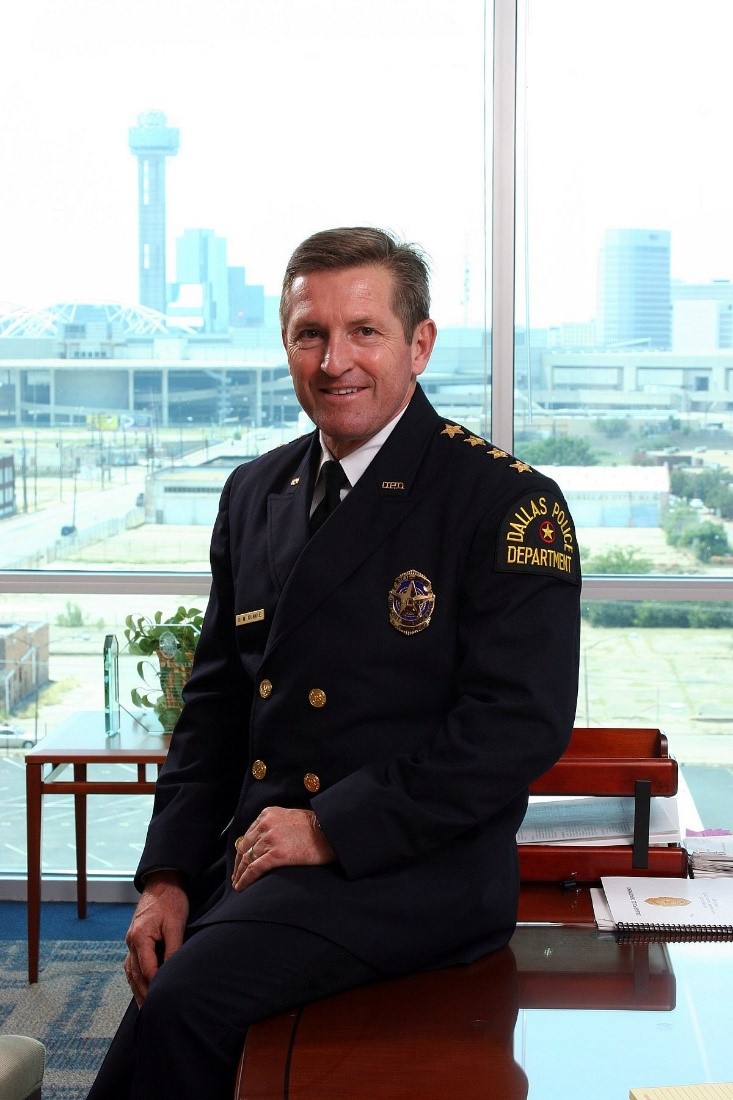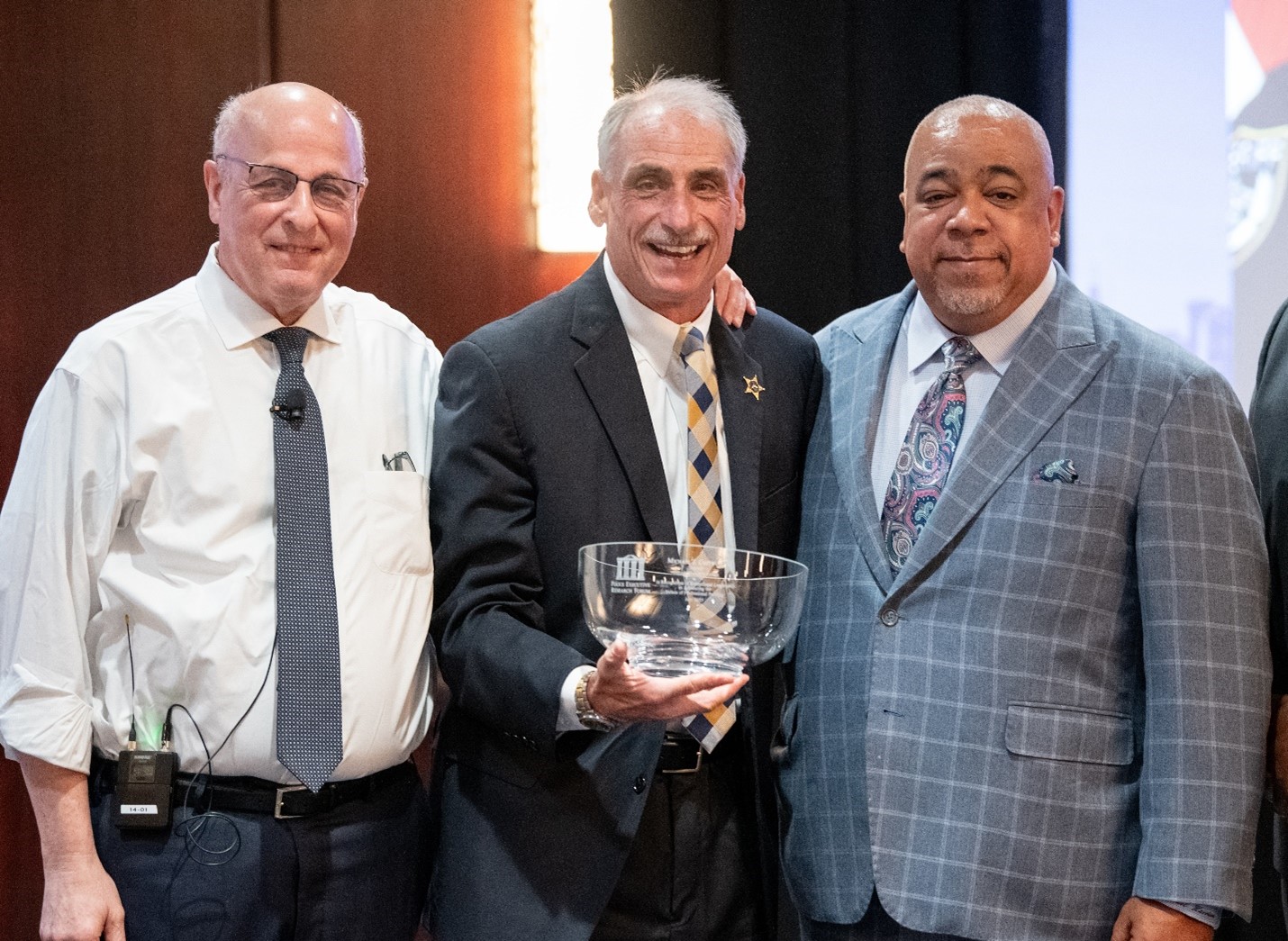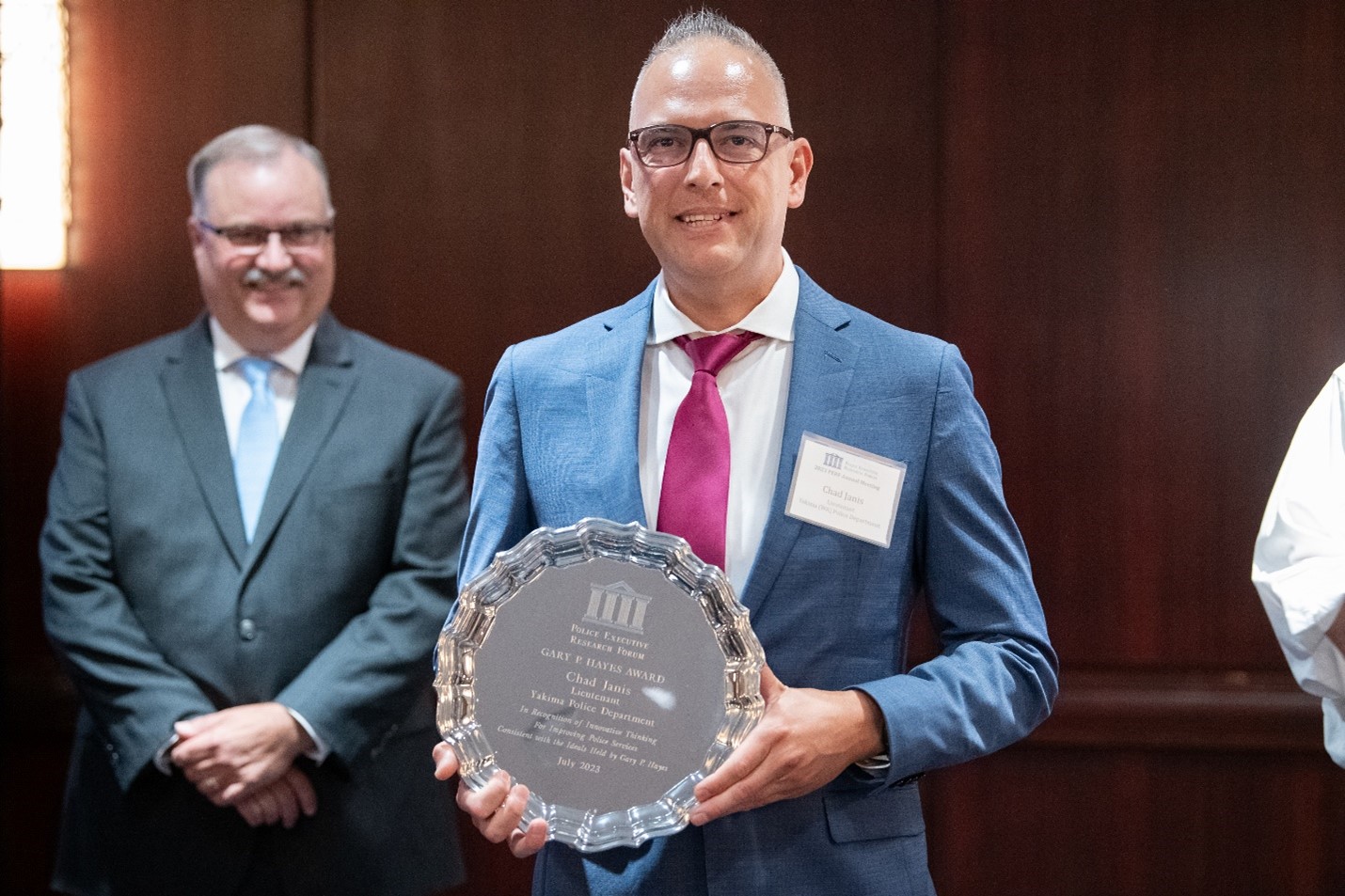|
July 22, 2023 Remembering a remarkable police chief and honoring PERF’s award recipients
PERF members, I’ve known many police chiefs, but none quite like David Kunkle. The former Dallas police chief died last Friday after a long fight with Lewy body dementia. He was the youngest person ever promoted to captain in the Dallas Police Department, then became police chief in Grand Prairie, Texas at age 31. He served as police chief and assistant city manager in Arlington, Texas, before returning to Dallas as the city’s police chief from 2004-2010. He was revered by his fellow Texas police chiefs. He was an iconoclast who was unassuming, tough, and ahead of his time. He implemented a restrictive pursuit policy, eliminated neck holds, and released video of controversial use-of-force incidents. In 1989 he made the Arlington Police Department the first large agency to require new officers to have a four-year college degree. He spoke plainly and directly when officers made mistakes. One such case occurred when a Dallas officer detained NFL player Ryan Moats near the hospital where he was visiting a dying family member. It was a high-profile situation that required strong leadership. David met the moment by holding a press conference to release video of the incident, issue an apology, and say that he was “embarrassed and disappointed by the behavior of one of our police officers.” He presented the facts and took responsibility. David ran 50 marathons, his fastest in 2 hours and 40 minutes. We’d often go for runs when we were together and discuss our personal and professional lives. Or it may be more accurate to say that he ran and I tried to keep up. I was a big fan of Jim Collins and his book Good to Great, which profiled successful business leaders. I connected with Collins and spent a day with him discussing policing and what makes chiefs successful. PERF held a conference and wrote a report about applying Collins’s “good to great” principles to policing, and David was an active participant. After that conference, Collins asked me to suggest a police chief to participate in a documentary about “Level 5 leaders,” which was the term he used to describe highly effective leaders. As we described in our “Good to Great” Policing report, Collins found that those leaders “were ambitious, but their ambition was directed first and foremost toward the company and its success, not to personal renown.” I instantly suggested that Collins include David in the documentary, because David fit that description perfectly. He was featured as a successful chief who faced crisis after crisis while leading the Dallas Police Department. Former Irving, Texas Chief Larry Boyd, who served under David in Arlington, shared some of his memories of David: “If you made a list of the biggest improvements needed in law enforcement across America today, it would include things such as a willingness to serve and listen to the community, especially the minority community; increasing diversity in police officer ranks; de-escalation; restricting the lateral vascular neck restraint (chokehold); reducing the risk related to police pursuits; curtailing officer-induced jeopardy; incorporating evidence-based solutions; and collaborating with social service agencies to impact societal challenges that aren’t in the law enforcement wheelhouse. David Kunkle was leading Arlington to adopt such strategies in the late 1980s and early 1990s – some 30 years before most people saw the need. . . . It took wisdom, foresight, confidence, and vision to be so far ahead of the curve. Most of all, it took courage because being that far out front comes with plenty of pushback. I am grateful for everything that I learned from Chief David Kunkle.” Dallas Area Rapid Transit Police Chief Charlie Cato, who served under David in Dallas, said David’s “greatest accomplishment was restoring the trust in the organization, because people did not trust us. People could trust David Kunkle so they could trust the Dallas Police Department.” Prince George’s County, Maryland Police Chief Malik Aziz, who also served under David in Dallas, told me that he “would not be chief today if it weren’t for David Kunkle. He took a chance on an outspoken guy, and that made all the difference in my career. He opened up things in Dallas and was light years ahead of everyone else.” David, who was a graduate of our third Senior Management Institute for Police (SMIP) class in 1982, regularly spoke to our SMIP classes after becoming a chief and was very popular with the students. He inspired a generation of leaders who went on to lead police agencies. At David’s memorial service, former Grand Prairie Chief Steve Dye said that more than 30 people who served under David went on to become police chiefs. When he became ill, they remained close to him and maintained communication through his courageous wife Sarah. David’s legacy will live on through the many chiefs who embraced his management style and leadership abilities. PERF’s Leadership and Gary Hayes Awards We held PERF’s Annual Meeting this week in New York City with more than 300 attendees. I’ll write about some of the discussions next week; this week I’d like to highlight this year’s award winners. PERF’s 2023 Annual Meeting in New York City The PERF board of directors selected two recipients for this year’s Leadership Award: Volusia County, Florida Sheriff Mike Chitwood and Chula Vista, California Chief Roxana Kennedy. Sheriff Chitwood began his career with the Philadelphia Police Department before serving as police chief in Shawnee, Oklahoma for one year and Daytona Beach, Florida for ten years. In 2016, he was elected sheriff of Volusia County, and he was reelected in 2020. Former Philadelphia Police Commissioner John Timoney once told me that Mike Chitwood was relentless and tenacious, one of the best cops he’d ever known. In Volusia County, Sheriff Chitwood was an early adopter of the ICAT training program, and the number of use-of-force incidents in his agency fell dramatically after he implemented ICAT and made other policy changes. Earlier this year Sheriff Chitwood responded to a series of antisemitic attacks in the area by organizing a press conference with a diverse group of community organizations and calling out the extremists publicly. “You came to the wrong county,” he announced to the hate group behind the attacks, which had also threatened him personally; “I stand with my Jewish friends and I’m honored to be on your hit list.”
Presenting the Leadership Award to Volusia County, Florida Sheriff Mike Chitwood with PERF President Michael Harrison Chief Kennedy has served with the Chula Vista Police Department for 31 years and has been the agency’s chief since 2016. Under her leadership, CVPD was the first agency in the country to implement a “drones as a first responder” program. Under this program, drones respond directly to the scene of an incident, often arriving before officers. Agencies across the country have looked to CVPD for advice on starting similar programs in their own municipalities. Chief Kennedy was unable to accept the award in person because she is serving on a medical mission trip in Malawi with Project Compassion (click here to view her brief video accepting this award). I will present the award to her in person at PERF’s Town Hall Meeting at the IACP Conference in San Diego this October. PERF’s Gary Hayes Award, which is named for PERF’s first executive director and recognizes an up-and-coming leader, was presented to Yakima, Washington Lieutenant Chad Janis. This year PERF offered ten scholarships to our SMIP program in Boston for the first time, and Lt. Janis was one of the recipients. Over the past two years, he has overhauled the way the Yakima Police Department handles domestic violence situations. Their new approach includes: incident-based lethality assessments; victim advocacy; warnings to offenders that their conduct will no longer be tolerated; victim follow-up within three days; a daily meeting with law enforcement and relevant partners to review cases from the previous 24 hours; an expedited arrest warrant system; and creation of the Yakima Domestic Violence Coalition, a monthly meeting with community partners to discuss the social issues driving domestic violence problems. He also partnered with the Yakima School District to implement the “Handle with Care” program, which informs schools when their students were involved in a traumatic incident. Yakima Police Chief Matt Murray enthusiastically recommended Lt. Janis for this award. “In my thirty-four-year law enforcement career I have known thousands of police officers,” Chief Murray wrote. “And having been in police management since 1999, I have observed hundreds of police supervisors and commanders. Chad is unique in this group. He is a shining example of what twenty-first century policing might become. He is the future and we are better for it.”
Yakima, Washington Lt. Chad Janis, with Yakima Chief Matt Murray in the background Congratulations to all our award winners. I look forward to sharing more of our Annual Meeting discussions next week. Best, Chuck
|




